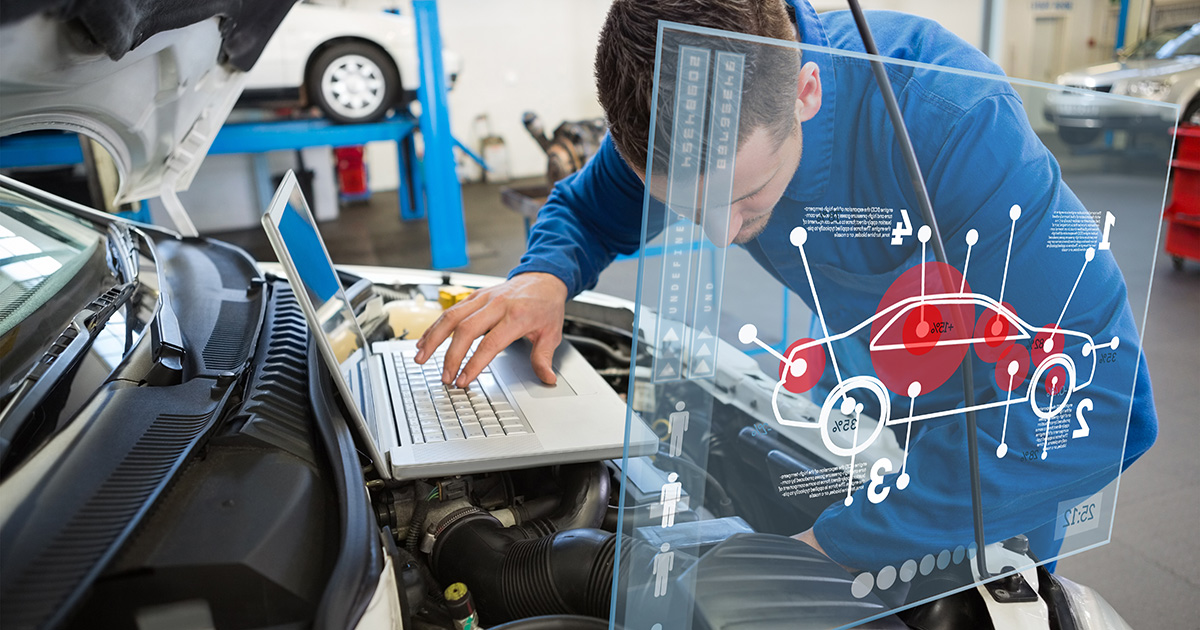Introduction to Automotive Technicians
Revving engines, intricate mechanical systems, and the thrill of problem-solving – these are just a few things that come to mind when we think about automotive technicians. From diagnosing complex issues to performing routine maintenance, these skilled professionals play a crucial role in keeping our vehicles running smoothly on the road. If you have ever wondered what it takes to be an automotive technician or are considering this exciting career path, then buckle up and join us as we explore the ins and outs of this dynamic profession. Get ready to dive deep into their duties, training requirements, specializations, and even discover some promising opportunities for those with a passion for all things automotive! So grab your tool belt and let’s get started!
Duties and Responsibilities of an Automotive Technician
Duties and Responsibilities of an Automotive Technician
When you bring your car to a mechanic, you expect them to know exactly what they’re doing. That’s where the automotive technician comes in. These experts are responsible for diagnosing and repairing issues with vehicles, ensuring that they are safe and running smoothly.
One of the main duties of an automotive technician is conducting inspections and performing routine maintenance on cars. This includes tasks such as changing oil, checking fluid levels, inspecting tires, and replacing worn-out parts. By regularly servicing cars, technicians can catch potential problems before they become major issues.
In addition to maintenance work, these professionals also excel at troubleshooting complex problems. When a car breaks down or starts making strange noises, it’s up to the automotive technician to identify the root cause of the issue. They use diagnostic tools and their expertise to diagnose problems accurately.
Once a problem is diagnosed, automotive technicians must then perform repairs or replacements accordingly. From fixing electrical systems to replacing engine components or even conducting complete engine overhauls – these skilled individuals have a wide range of responsibilities when it comes to fixing cars.
Safety is another crucial aspect of an automotive technician’s role. They ensure that vehicles meet safety standards by inspecting brakes, lights, steering systems, and other critical components that contribute to overall roadworthiness.
Furthermore,reliable communication skills are important for an automotive technician because they often need to explain complicated technical concepts in simple terms so customers can understand what needs repair or replacement
Overall,responsibilities may vary depending on the specialization within this field,but one thing remains constant:the dedication needed in order handle all aspects involved with vehicle repair
Education and Training Required for the Job
To become an automotive technician, individuals must undergo specific education and training to gain the necessary skills for the job. While a high school diploma is typically the minimum requirement, many technicians choose to pursue post-secondary education or vocational training programs.
These programs provide in-depth knowledge of automotive systems and technologies, as well as hands-on experience through internships or cooperative learning opportunities. Courses may cover subjects such as engine repair, electrical systems, brakes, suspension and steering, and computer diagnostics.
In addition to formal education, aspiring technicians can also benefit from on-the-job training provided by employers or manufacturers. This type of training allows them to learn about specific brands or models of vehicles and familiarize themselves with dealership service procedures.
Moreover, obtaining professional certifications can significantly enhance career prospects for automotive technicians. Organizations like ASE (Automotive Service Excellence) offer certification exams covering various areas of specialization within the field. These certifications demonstrate competence and expertise that can lead to higher-paying positions or advancement opportunities.
Continuous learning is essential in this industry due to rapidly evolving automotive technologies. Technicians must stay updated on new diagnostic tools, software applications, hybrid/electric vehicle systems advancements among others through attending workshops/seminars/webinars offered by manufacturers/industry organizations.
An effective combination of educational qualifications along with practical experience will greatly increase employability prospects in this ever-growing field.
Tools and Equipment Used by Automotive Technicians
When it comes to the job of an automotive technician, having the right tools and equipment is crucial. These tools are like their trusty sidekicks, helping them diagnose and repair various issues with vehicles. Let’s take a look at some of the common tools used by automotive technicians.
First up, we have the basic hand tools that every technician needs in their arsenal. This includes wrenches, sockets, screwdrivers, pliers, and hammers. These tools come in different sizes and shapes to accommodate different types of tasks.
Next on the list are diagnostic tools such as scan tools. These devices connect to a vehicle’s onboard computer system and provide valuable information about its performance. They can read error codes, monitor sensor data, and even perform software updates.
Another essential tool for automotive technicians is an air compressor. It helps power pneumatic tools like impact wrenches and air ratchets that are used for tasks such as removing lug nuts or tightening bolts.
In addition to these basics, there are also specialized tools for specific jobs like brake service or engine repair. For example, brake caliper pistons require a special tool for compression during brake pad replacement.
Modern technology has also introduced advanced equipment like wheel alignment machines and engine analyzers which help technicians perform precise measurements and diagnostics.
Having access to quality equipment not only makes their work easier but also ensures efficient repairs that meet industry standards.
So next time you visit your local auto shop or dealership for maintenance or repairs, appreciate the wide range of tools available behind those garage doors! From simple hand-held instruments to sophisticated diagnostic devices – they all play a vital role in keeping our vehicles running smoothly
Specializations within the Field of Automotive Technology
Specializations within the Field of Automotive Technology
In the ever-evolving world of automotive technology, there are numerous specializations that technicians can pursue to enhance their skills and career prospects. These specializations allow them to focus on specific areas of expertise and become highly sought-after professionals in their field.
One specialization is in electrical systems. Technicians who specialize in this area have a deep understanding of vehicle electrical components such as wiring, batteries, and alternators. They are skilled at diagnosing and repairing complex electrical issues that may arise in modern vehicles.
Another specialization is in engine performance. These technicians excel at tuning engines for optimal power and efficiency. They have a thorough knowledge of fuel injection systems, turbochargers, and other engine components. Their expertise allows them to diagnose performance-related problems quickly and accurately.
Some automotive technicians choose to specialize in brake systems. They possess extensive knowledge about different braking technologies, including anti-lock braking systems (ABS) and electronic stability control (ESC). These specialists can diagnose brake-related issues effectively and perform repairs or replacements as needed.
Additionally, there are specialists who focus on air conditioning (AC) systems. They understand how AC components work together to provide comfort during hot summer months or defrosting during winter weather conditions. AC specialists can troubleshoot any malfunctions with precision.
Some automotive technicians specialize in transmission repair or rebuilding transmissions entirely from scratch. This requires an advanced understanding of transmission technology, including hydraulic circuits and computer-controlled shifting mechanisms.
By specializing in one or more areas within the field of automotive technology, these skilled professionals not only increase their value but also open doors to various job opportunities across different sectors within the industry.
Career Opportunities and Salary Potential
Career Opportunities and Salary Potential
In the field of automotive technology, there are a wide range of career opportunities available for skilled technicians. Whether you choose to work in a dealership, an independent repair shop, or even start your own business, there are plenty of options to explore.
One common career path is becoming a general automotive technician. These professionals perform routine maintenance and repairs on vehicles, diagnosing issues and fixing them efficiently. With experience and additional training, technicians can advance their careers by specializing in areas such as electrical systems, transmissions, or diesel engines.
Another exciting opportunity for automotive technicians is working with advanced technologies like hybrid or electric vehicles. As these types of cars become more popular, the demand for knowledgeable technicians will continue to grow.
Additionally, there are opportunities within the industry to work as service advisors or parts specialists. These roles involve interacting with customers and providing support throughout the repair process.
When it comes to salary potential in this field, it can vary depending on factors such as location and level of experience. However, skilled automotive technicians have the potential to earn competitive wages. According to the Bureau of Labor Statistics (BLS), the median annual wage for automotive service technicians was $44,050 in May 2020.
Furthermore, experienced technicians who specialize in certain areas may command higher salaries due to their expertise. Additionally,becoming certified by organizations such as ASE (Automotive Service Excellence) can also lead to better job prospects and potentially higher earnings.
If you have a passion for cars and enjoy solving mechanical problems , pursuing a career as an automotive technician could provide you with numerous opportunities for growth , advancement ,and financial stability . By staying updated on emerging technologies , expanding your skill set ,and seeking out specialized training programs,you can position yourself well within this ever-evolving industry
The Future of Automotive Technicians in the Industry
The automotive industry is constantly evolving, with advancements in technology and a shift towards more sustainable practices. This means that the future of automotive technicians is promising and full of opportunities.
One key aspect driving this change is the emergence of electric vehicles (EVs). As governments around the world push for cleaner transportation options, EVs are becoming increasingly popular. This creates a need for technicians who specialize in working on electric drivetrains and high-voltage systems.
Another trend shaping the future of automotive technicians is the integration of advanced driver assistance systems (ADAS) and autonomous features. These technologies require skilled technicians to install, calibrate, and maintain them. With self-driving cars inching closer to reality, there will be an increased demand for technicians who can troubleshoot complex computer systems.
Furthermore, as vehicle connectivity becomes more prevalent, automotive technicians will need to adapt their skills to diagnose issues related to software updates or connectivity problems. They will also play a vital role in ensuring data security within connected vehicles.
In addition to these advancements, there will always be a need for traditional mechanical repairs and maintenance. While some tasks may become automated or streamlined through technology, human expertise and problem-solving skills will continue to be essential in identifying complex issues and providing effective solutions.
To stay relevant in this rapidly changing industry, automotive technicians must embrace continuous learning. Keeping up with new technologies through certifications or specialized training programs can enhance career prospects while ensuring they remain at the forefront of industry developments.
In conclusion,
the future looks bright for automotive technicians who are willing to adapt their skill set to meet the demands of emerging technologies. By staying informed about industry trends and investing in ongoing education,
technicians can position themselves as valuable assets in an ever-evolving field.
Conclusion
Conclusion
Automotive technicians are the unsung heroes of the automotive industry. They play a crucial role in keeping our vehicles running smoothly and safely on the road. From diagnosing complex issues to performing routine maintenance, these skilled professionals ensure that every car that comes into their workshop receives top-notch care.
In this article, we have explored the duties and responsibilities of an automotive technician, as well as the education and training required for this career. We’ve also discussed the tools and equipment they use daily, along with specializations within the field of automotive technology. Additionally, we explored career opportunities and salary potential for those entering this profession.
As technology continues to advance at a rapid pace, so too will the role of automotive technicians in our society. With electric vehicles becoming more prevalent and autonomous driving on the horizon, these professionals will need to stay up-to-date with emerging trends and technologies.
If you have a passion for cars and enjoy problem-solving, then pursuing a career as an automotive technician could be a rewarding choice. Not only will you get to work with your hands and see tangible results from your efforts but you’ll also contribute towards ensuring safe transportation for millions of people.
So whether you dream of working in a dealership or owning your own repair shop one day, becoming an automotive technician offers endless possibilities for growth and success. Embrace this dynamic field where no two days are ever alike!
Remember: The road ahead is filled with exciting challenges waiting to be conquered by skilled individuals like yourself – so gear up for an incredible journey in the world of automotive technology!




